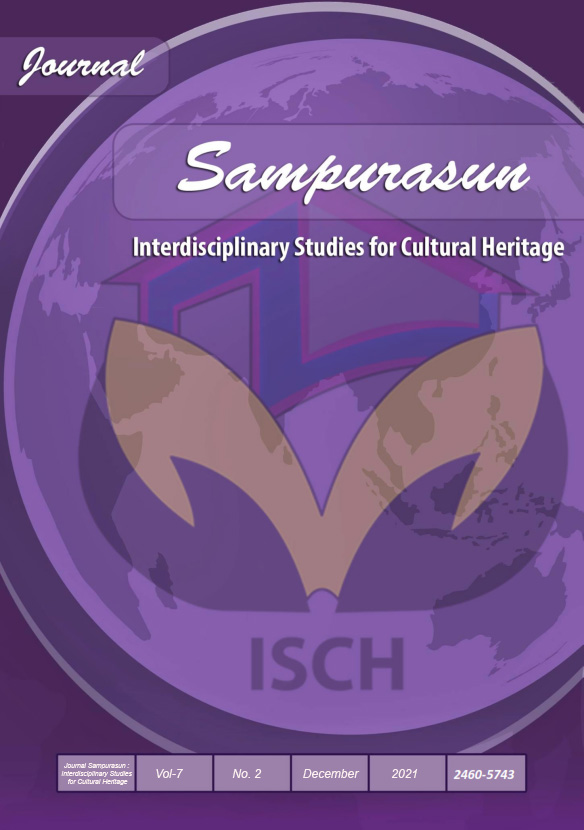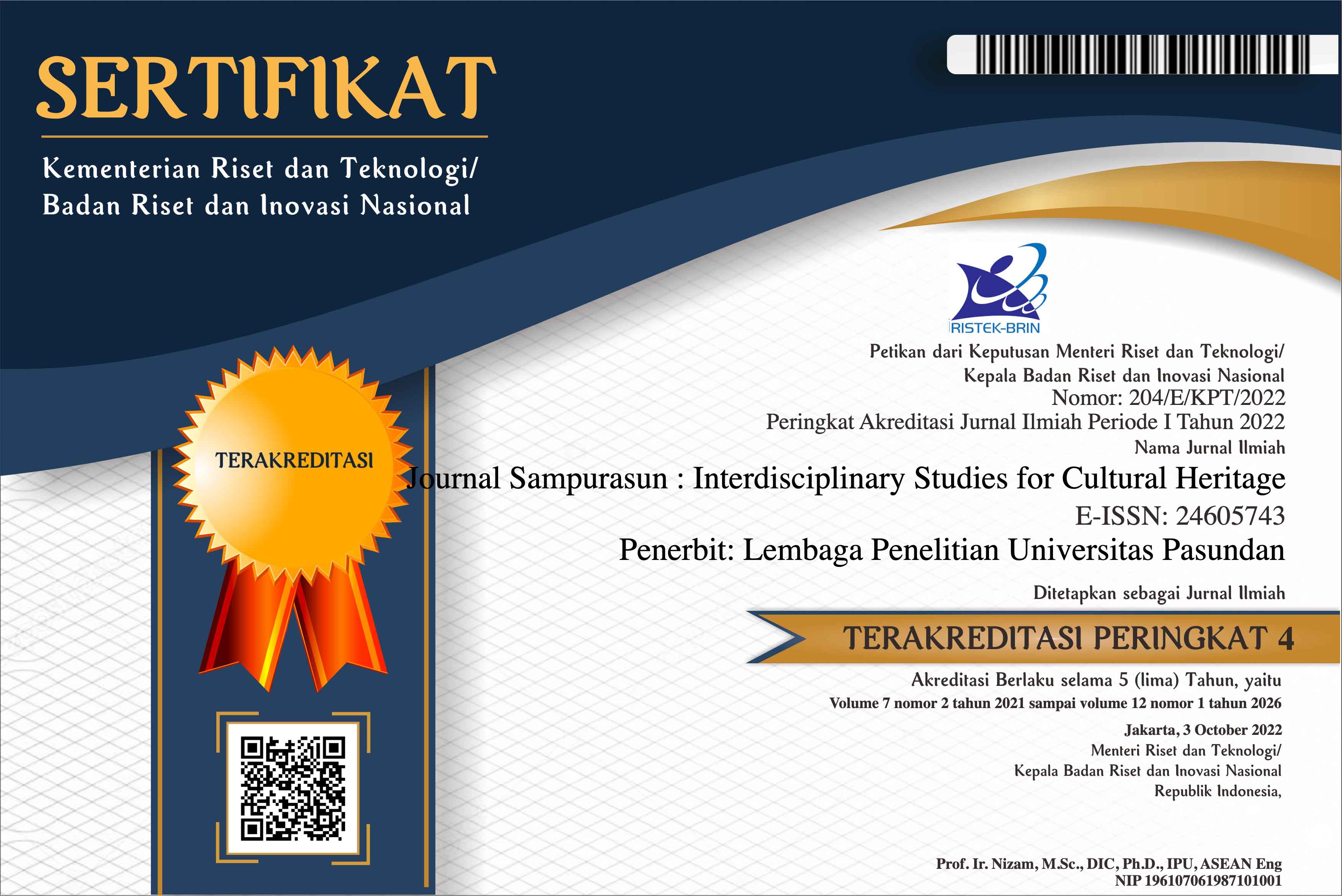OVERCOMING CHALLENGES IN VIRTUAL CLASSROOM TO MAINTAIN EFFECTIVE CLASSROOM MANAGEMENT AND CLASSROOM CULTURE: A CASE STUDY AT ONE VOCATIONAL SCHOOL
DOI:
https://doi.org/10.23969/sampurasun.v7i2.4635Keywords:
classroom management, challenges, virtual classroomAbstract
Effective classroom management supports the teacher classroom teaching profoundly. During Pandemic COVID 19 most classroom teachings are conducted in virtual classroom that have been greatly affected the way how teacher manage his or her own classroom. This causes some challenges for teachers in managing his or her virtual classroom. This study was conducted in the form of a case study in one vocational school in West Bandung region, West Java, Indonesia in which one English teacher was purposively selected as the participant of the research and one class consisted of 27 students. The objectives of this study are: (1) to find out the challenges of teacher in classroom management in virtual classroom (2) to find out what classroom management the teacher used in her virtual classroom. The researchers employed a qualitative case study which used classroom observation and teacher interview as main instrument. Data from classroom observation and interview transcript were analyzed according to the themes, coding and categorizing to answer the research questions. The results indicate that the teacher experienced many challenges in the virtual classroom, such as the students’ unreadiness to join the virtual class, internet connection problem, restricted time so that the teacher immediately taught the core material, students turned off the camera and sound, students learnt unattentively, less interaction and inappropriate class control. Some suggestions are given to the challenges occurred in their virtual classroom such as, by a) joining the virtual classroom earlier; b) checking the students’ attendance first; c) optimizing the teacher-students interaction during whilst- learning and post learning activity; and d) giving quizzes at the end of the lesson to make the students are more enthusiastic in learning. In this study, it is found that the teacher employed a combination of democratic and leisurely classroom management style. This finding leads to the point where a new style for virtual classroom management called Maye’s Conceptualization Model is proposed.
Downloads
References
Biswar, R.A. & Nandi, S. (2020). Teaching in Virtual Classroom: Challenges and Opportunities. International Journal of Engineering Applied Sciences & Technology. Vol. 5, Issue 1. ISSN No. 2455-2143, pp. 334-337. Published online May 2020 in IJEAST (http://www.ijeast.com).
Cresswell, J.W. (2014). Research Design: Qualitative, Quantitative and Mixed Method Approaches (4th edition). Thousand Oaks, CA: Sage.
Fusch, P., Fusch, G., & Ness, L.R. (2017). How to Conduct a Mini-Ethnographic Case Study: A Guide for Novice Researchers. The Qualitative Report. Vol. 22, No. 3.
Headden, S. (2014). Beginners in the classroom: What challenging demographics of teaching mean for schools, students, and society. Carnegie Foundation for the Advancement of Teaching. http:// www.carnegiefoundation.org/wp-content/uploads/2014/09/beginners_in_classroom.pdf
Ingersoll, R. M., & Smith, T. M. (2003). The wrong solution to the teacher shortage. Educational Leadership, 60(8), 30–33. Retrieved from http://citeseerx.ist.psu.edu/viewdoc/download?doi= 10.1.1.182.106&rep=rep1&type=pdf
Holloway, I., Brown, L., & Shipway, R. (2010). Meaning not measurement: Using ethnography to bring a deeper understanding to the participant experience of festivals and events. International Journal of Event and Festival Management, 1(1), 74-85. doi:10.1108/17852951011029315
Korucu, A.T. & Alkan, A., (2011). Differences between m-Learning (mobile Learning) and e-Learning, basic terminology and usage m-learning in education. Procedia. Social and Behavioral Sciences 15:1925-1930 DOI: 10.1061/j.sbspro.2011.04.029
Kompas. (2021). Jadwal Penyaluran Kuota Internet Gratis Kemendikbud 2021, Mulai September hingga November. Retrieved from kompas.com
Langdon, C. A. (1999). The fifth Phi Delta Kappa poll of teachers’ attitudes toward the public schools. The Phi Delta Kappan, 80(8), 611–618. https://www.jstor.org/stable/20439521
Langdon, C. A., & Vesper, N. (2000). The sixth Phi Delta Kappa poll of teachers’ attitudes toward the public schools. Phi Delta Kappan, 81(8), 607–611. https://www.jstor.org/stable/20439737 Lankford, H., Loeb, S., & Wyckoff, J. (2002). Teacher sorting and the plight of urban schools
Moore, J.I., Deane-Dickson, C. & Gaylen, K. (2011). E-learning, online learning, and distance learning: Are they the same? The Internet and Higher Education 14(2): 129-135. DOI: 10.1016/j.ihedue. 2010.10.001.
Mutqonah, R. & Hidayatullah, T. (2020). Impelemtasi Pembelajaran Daring (Program BDR) Selama Pandemi COVID-19 di Provinsi Jawa Barat. Jurnal PETIK Vol. 6, No. 2, Sept 2020, hal 86-96.
Palmer, C., & Amanda, B. (2006). A Brief Introduction to Qualitative Research. The Canadian Journal of Medical Radiation Technology, 37(1), 16-19. DOI: 10.1016/S0820-5930(09)60112-2.
Range, B. G., Duncan, H. E., Scherz, S. D., & Haines, C. A. (2012). School leaders’ perceptions about incompetent teacher implications for supervision and evaluation. NASSP Bulletin, 96(4), 302–322. https://doi.org/10.1177/0192636512459554
Renggayana, T. (2018). E-Learning dan Online Learning Itu berbeda Konsep dan Pengertian. Retrieved from https://renggayana.com
Rufai, Alebiosu & Adeakin. (2015). A Conceptual Model for Virtual Classroom Management. International Journal of Computer Science Engineering and Information Technology (IJCSEIT), Vol. 5, No. 1, Feb 2015. DOI: 10.5121/ijcseit2015.5103.
Scrivener, J. 2011. Learning Teaching 3rd Edition. Dahaka: Macmillan.
Wang, A. Y. (2001). Online Lectures: Benefits for the Virtual Classroom. T.H.E. Journal
Setyowati, I. 2017. Classroom Management Applied In Teaching English By The Tenth Grade English Teacher Of SMA N 1 Wonosari In The Academic Year Of 2015/2016. Thesis. Surakarta. Islamic Education And Teacher Training Faculty. The State Islamic Institute of Surakarta.
Sokal, L., Smith, D. G., & Mowat, H. (2003). Alternative certification teachers’ attitudes toward classroom management. The High School Journal, 86(3), 8–16. https://doi.org/10.1353/hsj.2003. 0004
Stoughton, E. H. (2007). “How will I get them to behave?”: Preservice teachers reflect on classroom management. Teaching and Teacher Education, 23(7), 1024–1037. https://doi.org/10.1016/j.tate. 2006.05.001
Sufeng, Y., & Song R.2013. Virtual Classroom and Traditional Classroom. International Conference on Education Technology and Management Science, 114-116.
Sugai, G., & Horner, R. (2002). The evolution of discipline practices: School-wide positive behavior supports. Child &
Family Behavior Therapy, 24, 23–50. doi:10.1300/J019v24n01_03
White, K. L. (2009). Meztizaje and remembering in Afro-Mexican communities of the Costa Chica: Implications for archival education in Mexico. Archival Science, 9, 43-55. doi:10.1007/s10502-009-9102-5
Westling, D. L. (2010). Teachers and challenging behavior knowledge, views, and practices. Remedial and Special Education, 31(1), 48–63. https://doi.org/10.1177/0741932508327466
Zhang et.al. (2004). “Can E-learning replace Classroom Learning?” Communication of the ACM 47(5): 75-79. DOI: 10.11.45/986213986216
Downloads
Published
Issue
Section
License
Copyright Notice
Authors should not withdraw their submitted papers because the withdrawal wastes voluntary works devoted by an associate editor and reviewers. But, we accept the withdrawal of a submitted paper if authors have unavoidable reasons. In the event that a manuscript is to be withdrawn from submission to Sampurasun Journal, a letter must be sent to the editorial office requesting withdrawal by e-mail (sampurasunjournal@unpas.ac.id) with its scanned PDF file, before the notification of acceptance for publication.
The withdraw request letter must include the following information. Paper ID, Paper title, Authors names, Reason why the paper must be withdrawn, and Date and signatures of all the authors (or signature of the contact author).
If only the contact author signs the letter, he/she must obtain the agreement of the withdrawal from all the other authors and the letter must include the description that all the other authors agreed the withdrawal. The journal will not withdraw a manuscript from peer review until such a letter has been received. Authors must not assume their manuscript has been withdrawn until they have received appropriate notification from the editorial office. Withdrawal of a manuscript subsequent to acceptance for publication will only be granted in the most exceptional of circumstances.
After the paper is accepted for publication, the withdrawal is not permitted in principle. The authors must always pay the charge even if the withdrawal is permitted. Any request of withdrawal that does not follow the above procedure is treated as invalid. If illegal submission, e.g., plagiarized or duplicate submission, is found for a paper, the withdrawal of the paper will never be permitted and the authors will be punished based on the rule. It is not acceptable practice to withdraw a manuscript in the event of acceptance at another journal. This constitutes dual submission. The editorial office of the other journal will be notified of your actions. In such circumstances Sampurasun ISCH may chose to impose appropriate punitive action subject.
Withdrawal Penalty
Author is not allowed to withdraw submitted manuscripts, because the withdrawal is waste of valuable resources that editors and referees spent a great deal of time processing submitted manuscript, money and works invested by the publisher. If author still requests withdrawal of his/her manuscript when the manuscript is still in the peer-reviewing process, author will be punished with paying $200 per manuscript, as withdrawal penalty to the publisher. However, it is unethical to withdraw a submitted manuscript from one journal if accepted by another journal. The withdrawal of manuscript after the manuscript is accepted for publication, author will be punished by paying US$500 per manuscript. Withdrawal of manuscript is only allowed after withdrawal penalty has been fully paid to the Publisher. If author don't agree to pay the penalty, the author and his/her affiliation will be blacklisted for publication in this journal. Even, his/her previously published articles will be removed from our online system.


















